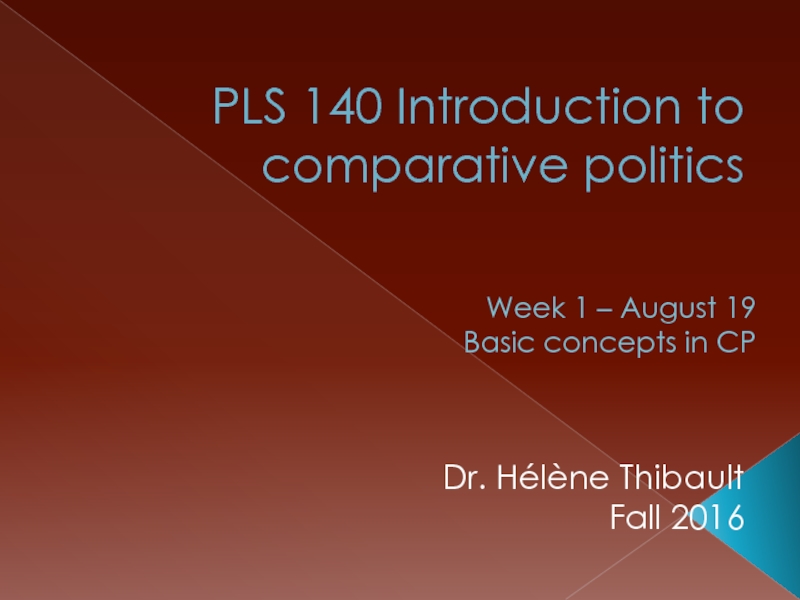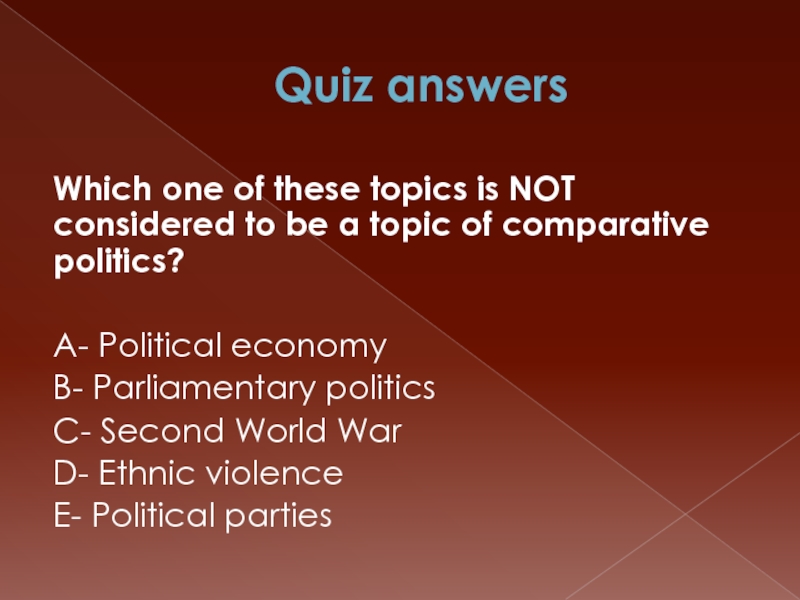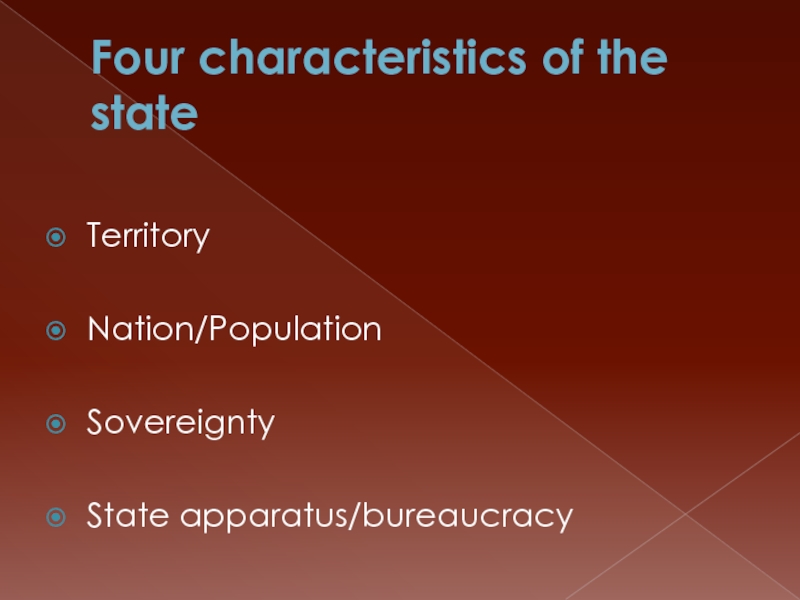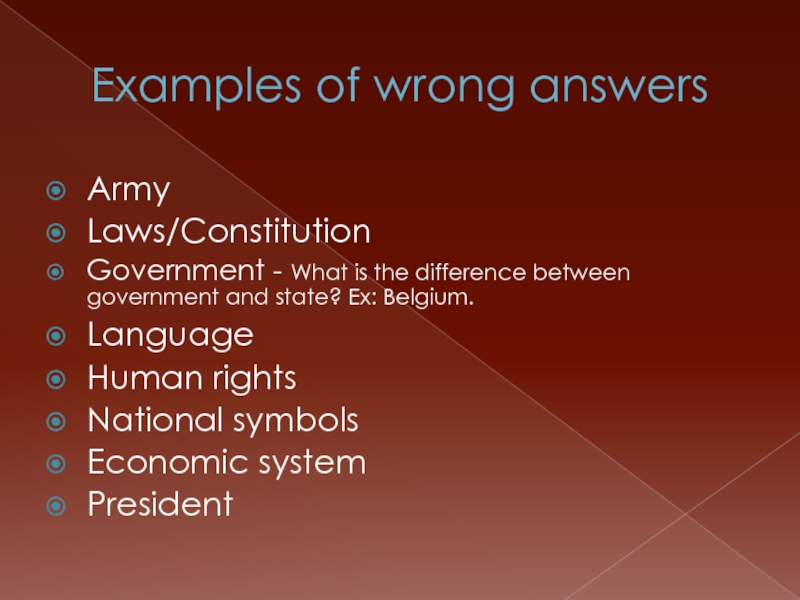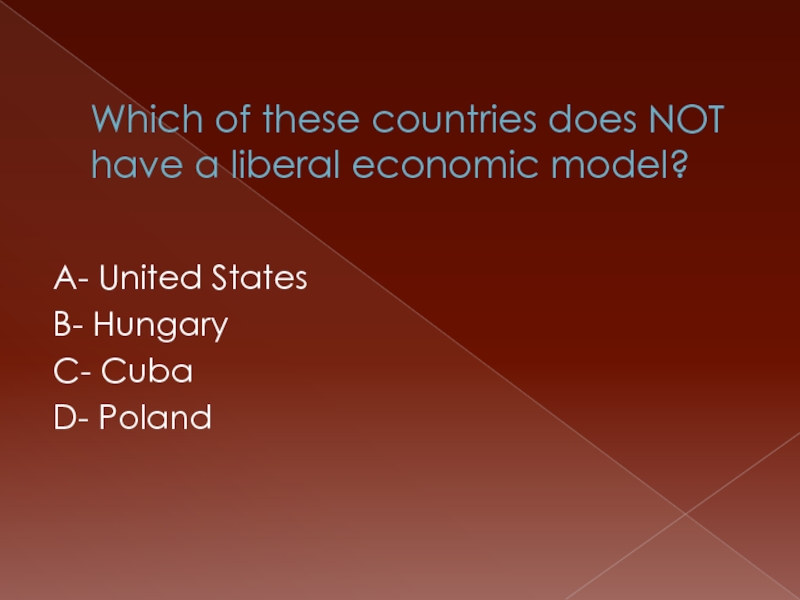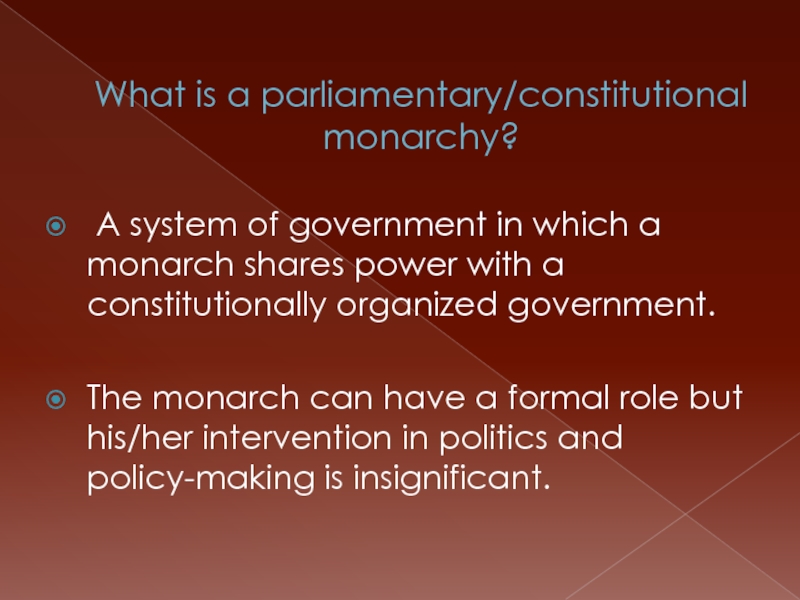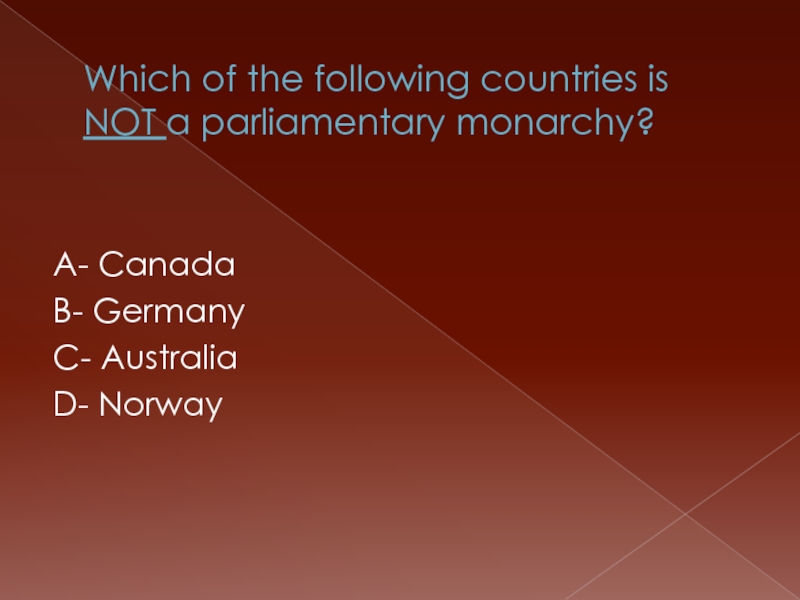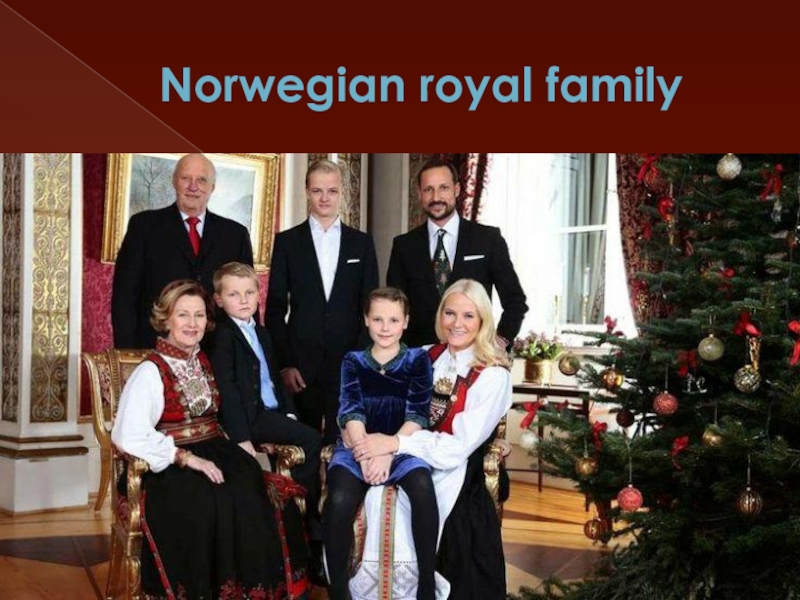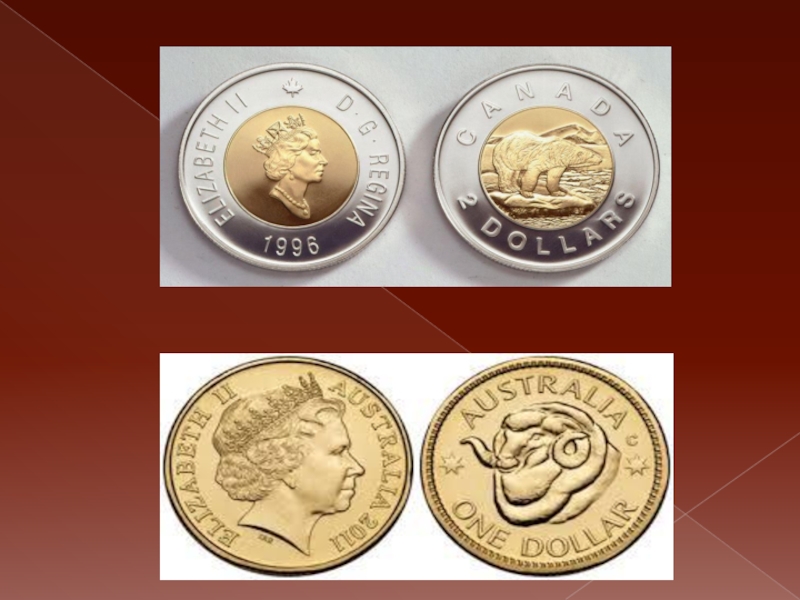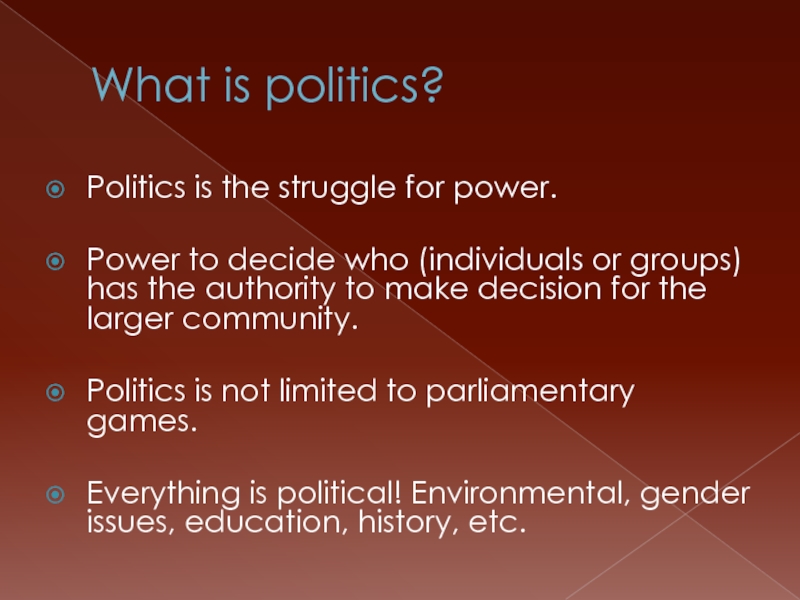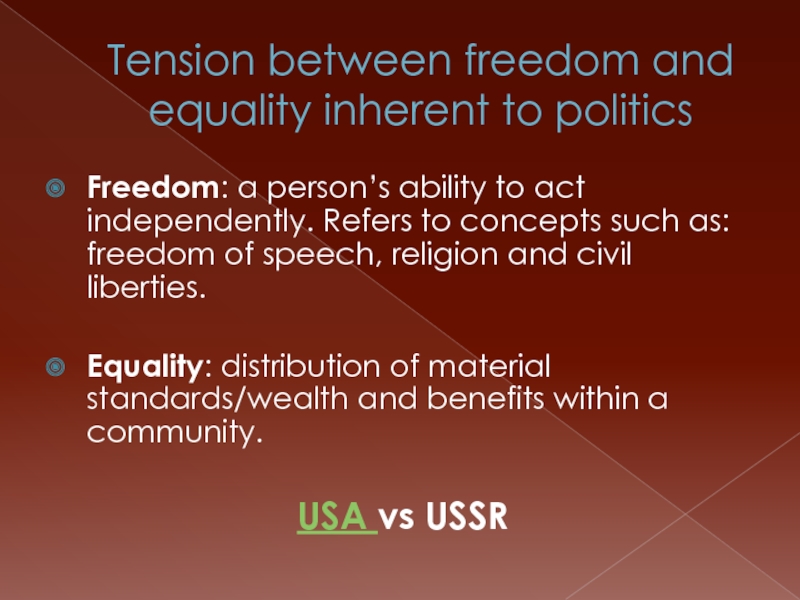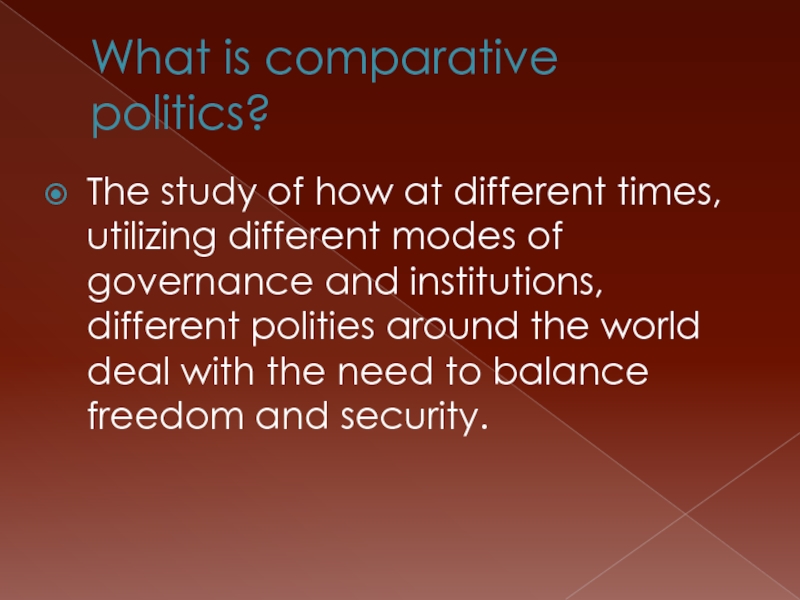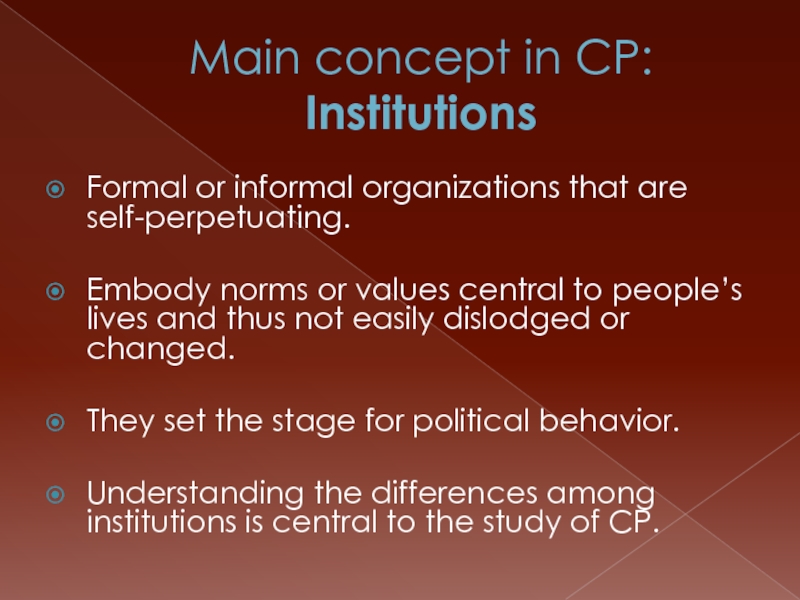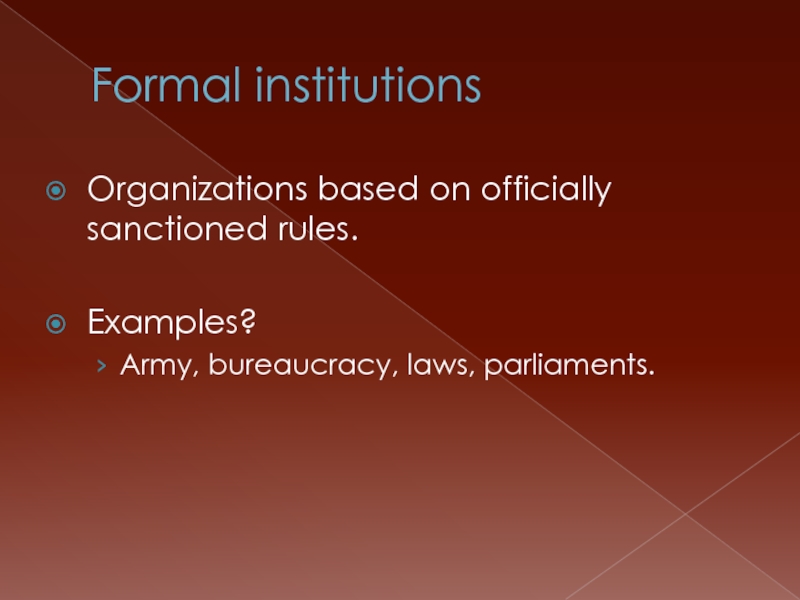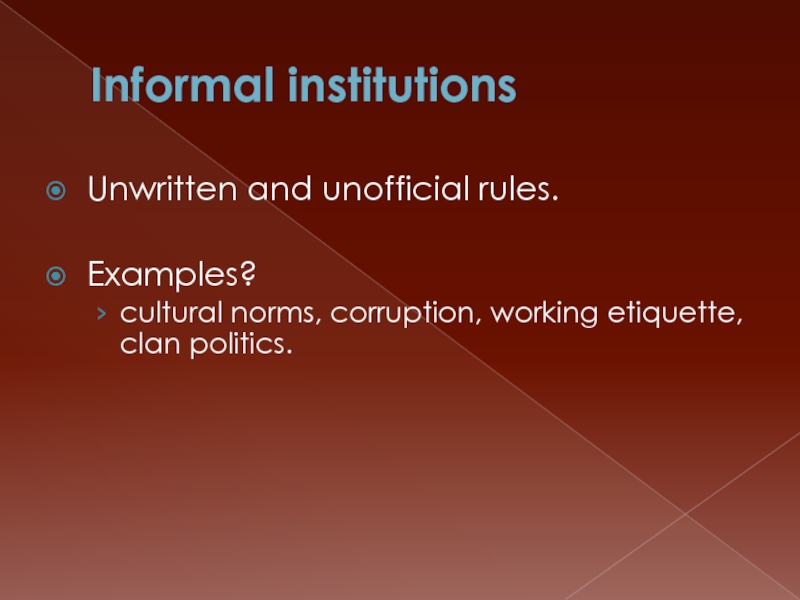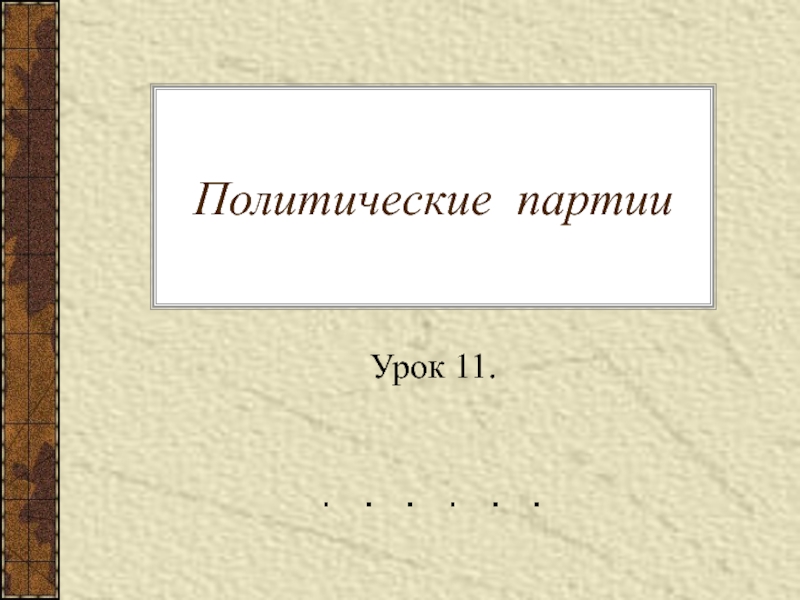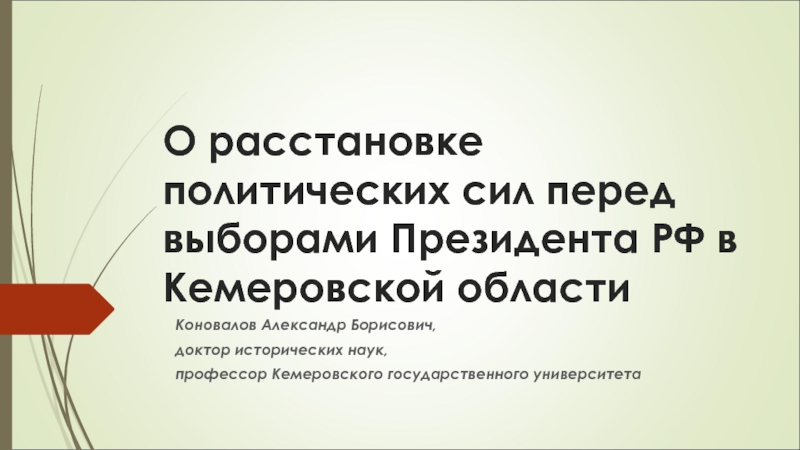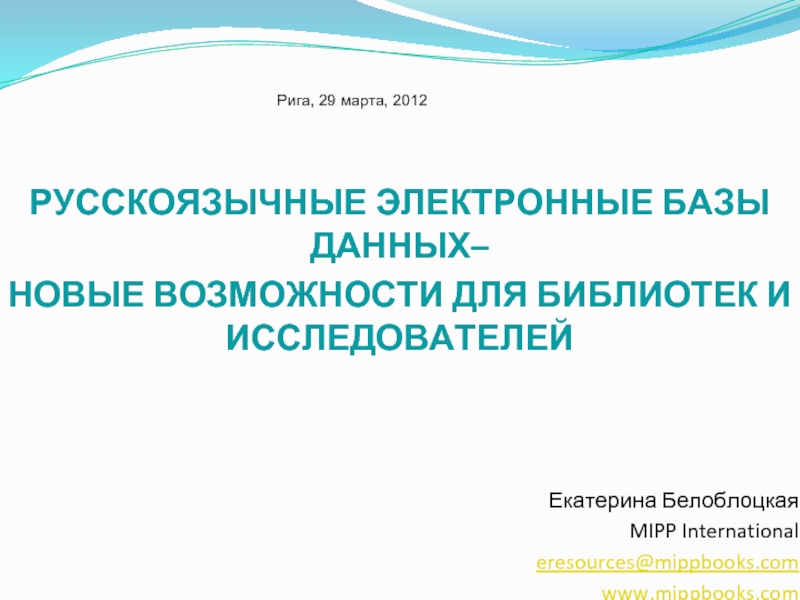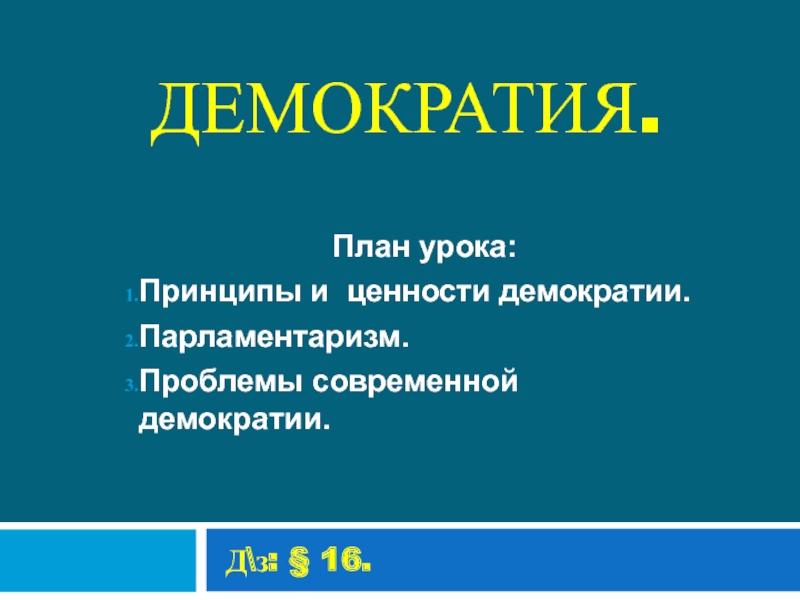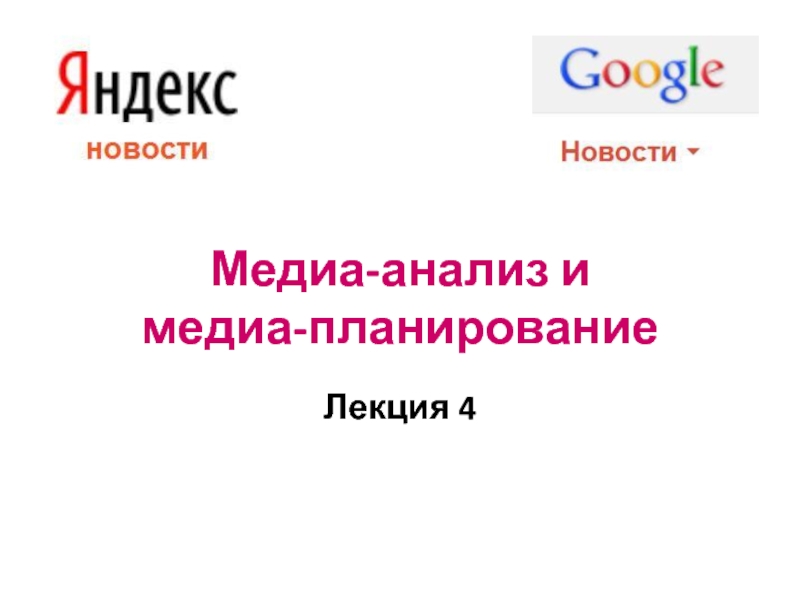August 19
Basic concepts in CP
- Главная
- Разное
- Дизайн
- Бизнес и предпринимательство
- Аналитика
- Образование
- Развлечения
- Красота и здоровье
- Финансы
- Государство
- Путешествия
- Спорт
- Недвижимость
- Армия
- Графика
- Культурология
- Еда и кулинария
- Лингвистика
- Английский язык
- Астрономия
- Алгебра
- Биология
- География
- Детские презентации
- Информатика
- История
- Литература
- Маркетинг
- Математика
- Медицина
- Менеджмент
- Музыка
- МХК
- Немецкий язык
- ОБЖ
- Обществознание
- Окружающий мир
- Педагогика
- Русский язык
- Технология
- Физика
- Философия
- Химия
- Шаблоны, картинки для презентаций
- Экология
- Экономика
- Юриспруденция
PLS 140 Introduction to comparative politics. Basic concepts in CP. Quiz answers презентация
Содержание
- 1. PLS 140 Introduction to comparative politics. Basic concepts in CP. Quiz answers
- 2. Quiz answers Which one of these topics
- 3. Four characteristics of the state Territory
- 4. Examples of wrong answers Army Laws/Constitution Government
- 5. Which of these countries does NOT have
- 6. What is a parliamentary/constitutional monarchy? A system
- 7. Which of the following countries is NOT
- 8. Norwegian royal family
- 10. What is politics? Politics is the struggle
- 11. Tension between freedom and equality inherent to
- 12. What is comparative politics? The study of
- 13. Main concept in CP: Institutions Formal or
- 14. Formal institutions Organizations based on officially sanctioned rules. Examples? Army, bureaucracy, laws, parliaments.
- 15. Informal institutions Unwritten and unofficial rules.
Слайд 2Quiz answers
Which one of these topics is NOT considered to be
a topic of comparative politics?
A- Political economy
B- Parliamentary politics
C- Second World War
D- Ethnic violence
E- Political parties
A- Political economy
B- Parliamentary politics
C- Second World War
D- Ethnic violence
E- Political parties
Слайд 3Four characteristics of the state
Territory
Nation/Population
Sovereignty
State apparatus/bureaucracy
Слайд 4Examples of wrong answers
Army
Laws/Constitution
Government - What is the difference between government
and state? Ex: Belgium.
Language
Human rights
National symbols
Economic system
President
Language
Human rights
National symbols
Economic system
President
Слайд 5Which of these countries does NOT have a liberal economic model?
A-
United States
B- Hungary
C- Cuba
D- Poland
B- Hungary
C- Cuba
D- Poland
Слайд 6What is a parliamentary/constitutional monarchy?
A system of government in which a
monarch shares power with a constitutionally organized government.
The monarch can have a formal role but his/her intervention in politics and policy-making is insignificant.
The monarch can have a formal role but his/her intervention in politics and policy-making is insignificant.
Слайд 7Which of the following countries is NOT a parliamentary monarchy?
A- Canada
B-
Germany
C- Australia
D- Norway
C- Australia
D- Norway
Слайд 10What is politics?
Politics is the struggle for power.
Power to decide
who (individuals or groups) has the authority to make decision for the larger community.
Politics is not limited to parliamentary games.
Everything is political! Environmental, gender issues, education, history, etc.
Politics is not limited to parliamentary games.
Everything is political! Environmental, gender issues, education, history, etc.
Слайд 11Tension between freedom and equality inherent to politics
Freedom: a person’s ability
to act independently. Refers to concepts such as: freedom of speech, religion and civil liberties.
Equality: distribution of material standards/wealth and benefits within a community.
USA vs USSR
Equality: distribution of material standards/wealth and benefits within a community.
USA vs USSR
Слайд 12What is comparative politics?
The study of how at different times, utilizing
different modes of governance and institutions, different polities around the world deal with the need to balance freedom and security.
Слайд 13Main concept in CP: Institutions
Formal or informal organizations that are self-perpetuating.
Embody
norms or values central to people’s lives and thus not easily dislodged or changed.
They set the stage for political behavior.
Understanding the differences among institutions is central to the study of CP.
They set the stage for political behavior.
Understanding the differences among institutions is central to the study of CP.
